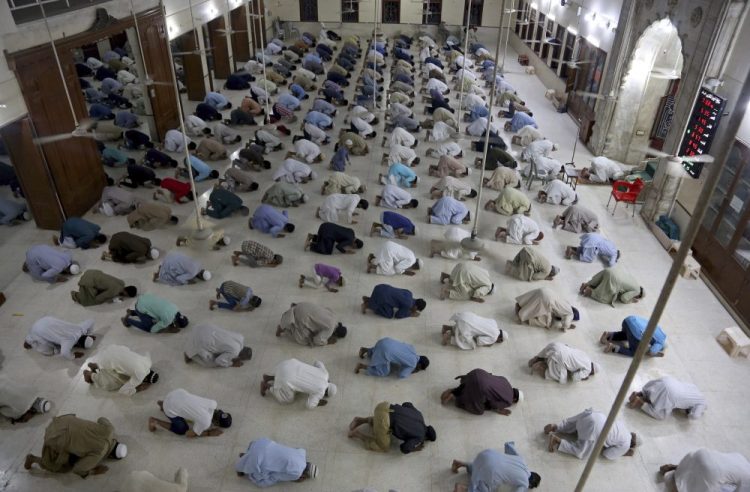Marwa Elkelani wanted to make this Ramadan special for her family, even though the pandemic will disrupt many traditions during the holy month for Muslims.
She recalled the tents erected in neighborhoods across her parents’ native Egypt during Ramadan. After dusk, families and friends gather in those tents to break their fast and be together. This year, those large gatherings are not permitted, but Elkelani found a tent on Amazon to set up in her home. She is planning to put pillows and books inside to create a nook for her four children.
“What we don’t want people to feel is a sense of despair,” she said. “We really want Ramadan to be uplifting for people.”
Elkelani is a Bangor School Board member and the education coordinator at the Islamic Center of Maine in Orono.
Ramadan is one of the holiest times of the year for Muslims, and the first day of fasting is Friday. But across the world, mosques are closed and community gatherings are prohibited. In Maine, Elkelani and others are looking for creative ways to observe both their faith and the public health guidelines related to coronavirus.
“The Ramadan spirit, the prayers, the fasting, all of that remains the same,” she said. “We don’t want people to feel like just because we can’t go to the mosque, we can’t do the same things.”
While Elkelani said decorations are not usually part of Ramadan, she knows of many families like hers who are decorating for their children. For example, they are putting out lanterns as symbols of light or streamers with crescent moons. She found a special wreath to hang on the front door.
Portland City Councilor Pious Ali said he will go online for prayers and scripture readings, which will be shared across the world. He hopes the local mosque will be able to host online discussions for its members, and young people can help their family members who are less familiar with technology to do so as well.
“We will be staying home, but we will stay connected in so many ways,” he said.
People will not be able to host large gatherings for iftar, the meal at which Muslims break their daily fast. But community leaders across the state are organizing deliveries of food and meals for people who are isolated or in need.
The New England Arab American Organization delivered boxes of essentials to more than 600 people in southern Maine over the weekend, and executive director Zoe Sahloul said she expects to make deliveries for another 500 people near Augusta before the end of the week.
The organizers wanted to make sure families celebrating Ramadan had food that would sustain them through their days of fasting. The boxes include chickpeas, dates, rice, olive oil, spices and other basics. Grants and donations helped the group purchase those items, and Sahloul said she hopes to provide families with gift cards to buy halal meat in the coming weeks.
“It’s very essential to have a very healthy meal when you break your fast,” she said.
In Orono, Elkelani said the mosque has arranged a daily pickup system. Students, health care workers and others will be able to drive up and safely receive a meal provided by another member of the community. A spirit of giving is part of Ramadan, she said, and those charitable efforts can continue even if they look different than years past.
“Little ideas here and there keep our community members feeling like they’re connected with us,” she said.
Send questions/comments to the editors.



Comments are no longer available on this story